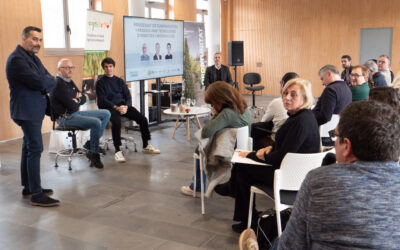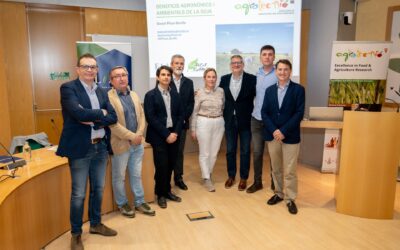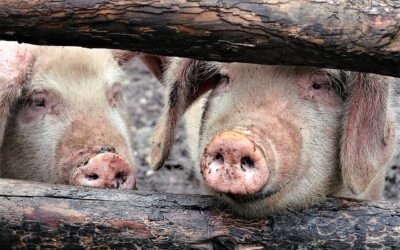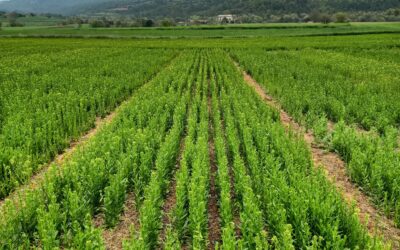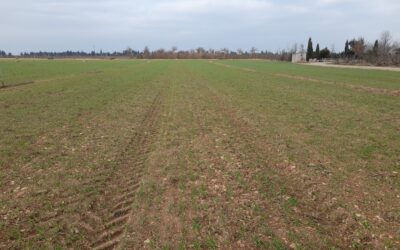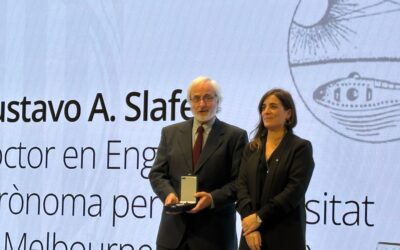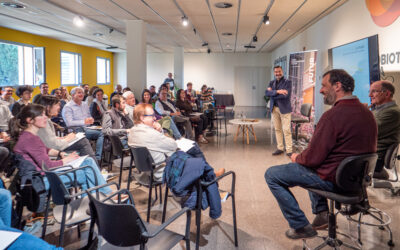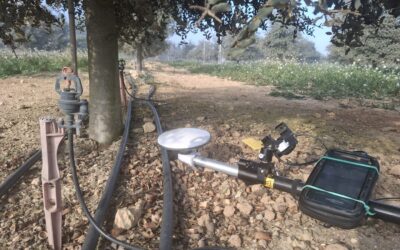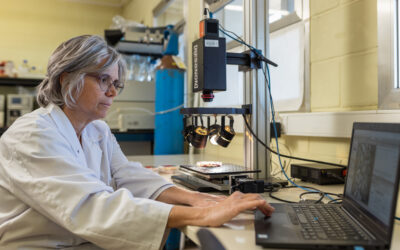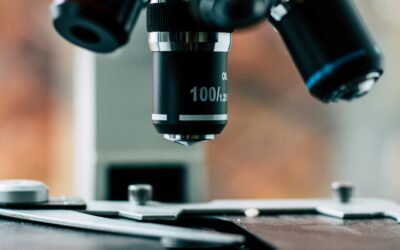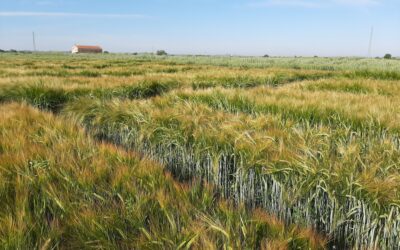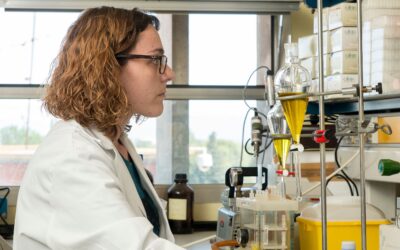News
Microalgae and Insects to Transform Agri-Food By-Products and Waste into Valuable Resources
Agrotecnio and Parc Agrobiotech Lleida have organized a new informative breakfast to showcase the work of two companies that process agri-food residues and treat waste to manufacture sustainable and value-added products. As part of the new Breakfast4Inno, organized...
Agrotecnio presents a new project to promote value-added soybean cultivation
A hundred farmers attended the technical conference co-organized with the companies Elian Barcelona and Cerescamp to explore the possibilities of this crop as a sustainable and competitive alternative. Agrotecnio has signed an agreement with Elian Barcelona to...
Agrotecnio drives the digitalization of fattening farms for a more efficient and sustainable pig production
The digitalization of the pig sector continues to advance and has now reached fattening farms, a key phase in pork production. The use of automatic feeders and other sensors provides valuable data on the animals' feeding behavior, paving the way for more efficient and...
Camelina: A Strategic Crop to Tackle Drought and Ensure the Sustainability of Irrigated Agriculture in Catalonia
Agrotecnio and UdL secure support from the Department of Agriculture to carry out a demonstration project to study and promote this oilseed crop. This activity is co-financed by the EU through intervention 7201 of the CAP Strategic Plan 2023-2027. Camelina (Camelina...
Agrotecnio and the University of Lleida develop an innovative initiative to optimise the use of phytosanitary products in extensive crops.
A wide range of technologies is available on the market to optimize the use of plant protection products. However, their integration by technicians and farmers remains limited. The project led by Agrotecnio, “Bridging the Digital Gap: Weed Detection and Control...
Researcher Gustavo Slafer Receives the Narcís Monturiol Medal for Scientific and Technological Merit
Slafer is an ICREA research professor at the University of Lleida and leads the Crop Physiology research group at Agrotecnio His research focuses on the physiological bases of yield in extensive crops, mainly wheat and barley, aiming to increase production through...
“The Use of Cover Crops in Vineyards Facilitates More Resilient Viticulture”
The first Breakfast4Inno of 2025 focuses on the use of this technique in the viticulture sector Agrotecnio and the University of Lleida are researching the management of cover crops in dry-farmed vineyards in collaboration with the L’Olivera cooperative in Vallbona...
Agrotecnio and CTFC collaborate in a project to apply precision agriculture to black truffle cultivation
The objective of DIPROTES is to improve the production of black truffle by means of digitalisation and 3D monitoring of the plantations, in order to increase productivity, efficiency and sustainability. It is an activity co-financed by the EU through intervention...
Agrotecnio participates in a project in the baby food sector to control the presence of mycotoxins in fruit
The aim is to develop protocols for the control and prevention of mycotoxins produced by the fungus Alternaria, which can contaminate pears and apples used in the manufacture of baby food. The Department of Food Technology, Engineering and Science (DTECAL) of the...
Agrotecnio and IRBLleida jointly promote three new biomedical research projects
Studies address the prevention of colonorectal cancer through the intake of barley-rich foods, the use of rice seed extracts to inhibit infectious diseases and the investigation of systems to enhance the absorption of beta-carotene. The two CERCA centers are...
Agrotecnio investigates the resilience of barley and malt to heat wave stress and pre-harvest sprouting
This is a collaborative project with the companies La Moravia (Damm group), Semillas Batlle and Cupasa, and is financed by the Department of Agriculture, Livestock and Fisheries of the Generalitat de Catalunya The aim is to improve the malting barley value chain and...
Agrotecnio launches 6 projects with the Departments of Law and Economics and Business of the University of Lleida
The Foundation encourages its scientists to collaborate with other researchers at the UdL The initiative includes a project on the importance of women in the preservation of agrobiodiversity and the promotion of e-commerce in the pig sector The CERCA Agrotecnio...

